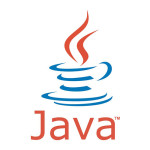Posted by The TechMentor in BASH, Scripts
on May 20th, 2014

If you spend much time at all coding or scripting you realize that you often do some of the same things over and over. That’s where functions and libraries come in. Having a library of commonly used functions handy helps speedup the coding process quite a bit. Usually I prefer to use the best tool for the job. That means using Perl, PHP, C, C++, BASH, or any other language suited for the task. However, lately I’ve been using BASH more than usual. Primarily because it’s pretty much guaranteed to be on just about ever, non Windows, system that I touch. Unfortunately, while I have an...

Posted by The TechMentor in CentOS, Configuration, Hardware, Linux, Tips&Tricks, Ubuntu
on Mar 26th, 2014

Often I find that I am needing to determine a) if an O/S install is 32bit or 64bit and b) if the CPU will support 64bit. I run into a lot of Linux boxes that have 64bit CPUs but the 32bit version of the distribution was installed. Here are a few quick ways to tell. For the O/S: The architecture should be listed as x86_64 for 64bit or i686 for 32bit. Using uname (-m or -p): 64bit $ uname -m x86_64 $ uname -p x86_64 32bit $ uname -m i686 $ uname -p i686 or using lscpu: 64bit $ lscpu | grep -i arch Architecture: x86_64 32bit $ lscpu | grep -i arch Architecture: i686 or using getconf: 64bit $ getconf...

Posted by The TechMentor in Configuration, OS X, Tips&Tricks
on Mar 6th, 2014

Well, in the name of security, it seems Java 7 has broken a whole lot of apps. I will not bother with the pros and cons of this, but will simply address how to get things working again. Java 7, by default, blocks “untrusted” and “self-signed” applications. In addition, it is 64 bit and will not work with Chrome on Macs, which is 32 bit. Trying to run such an app results in this annoying dialog: There are a couple ways around this. The most simple is to use the Java Security Preferences to lower the Security Level. This can be done by: Select “System...








